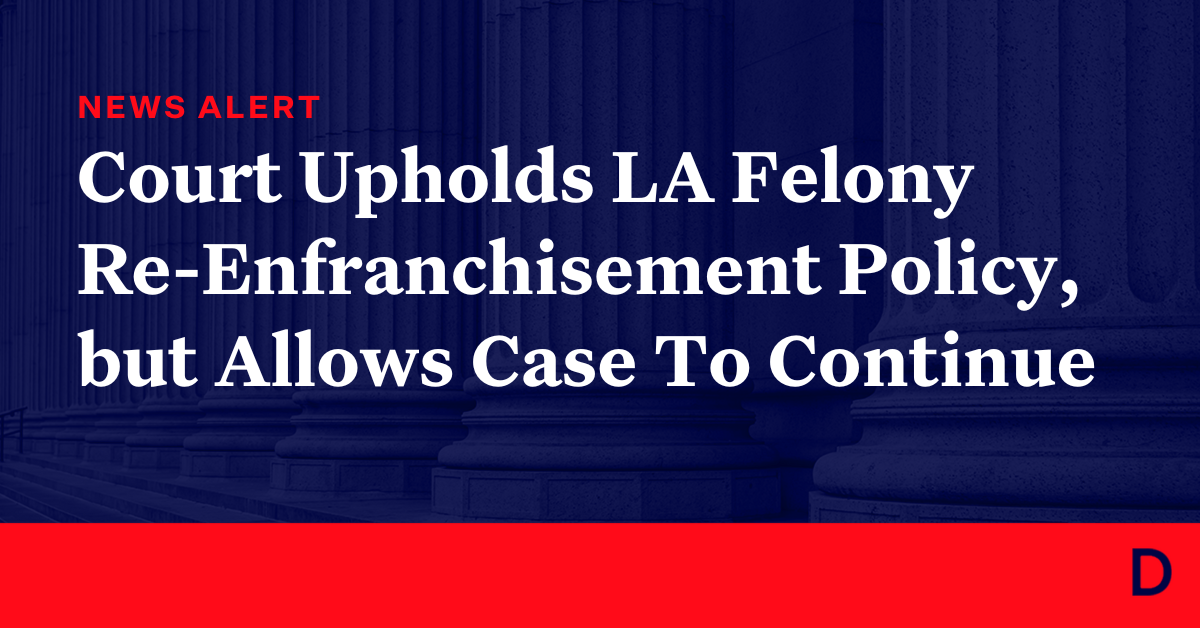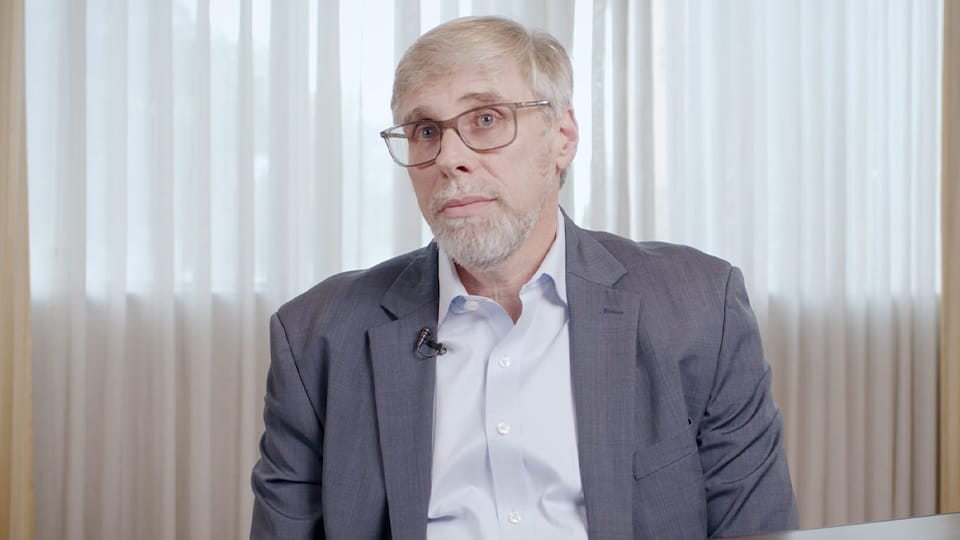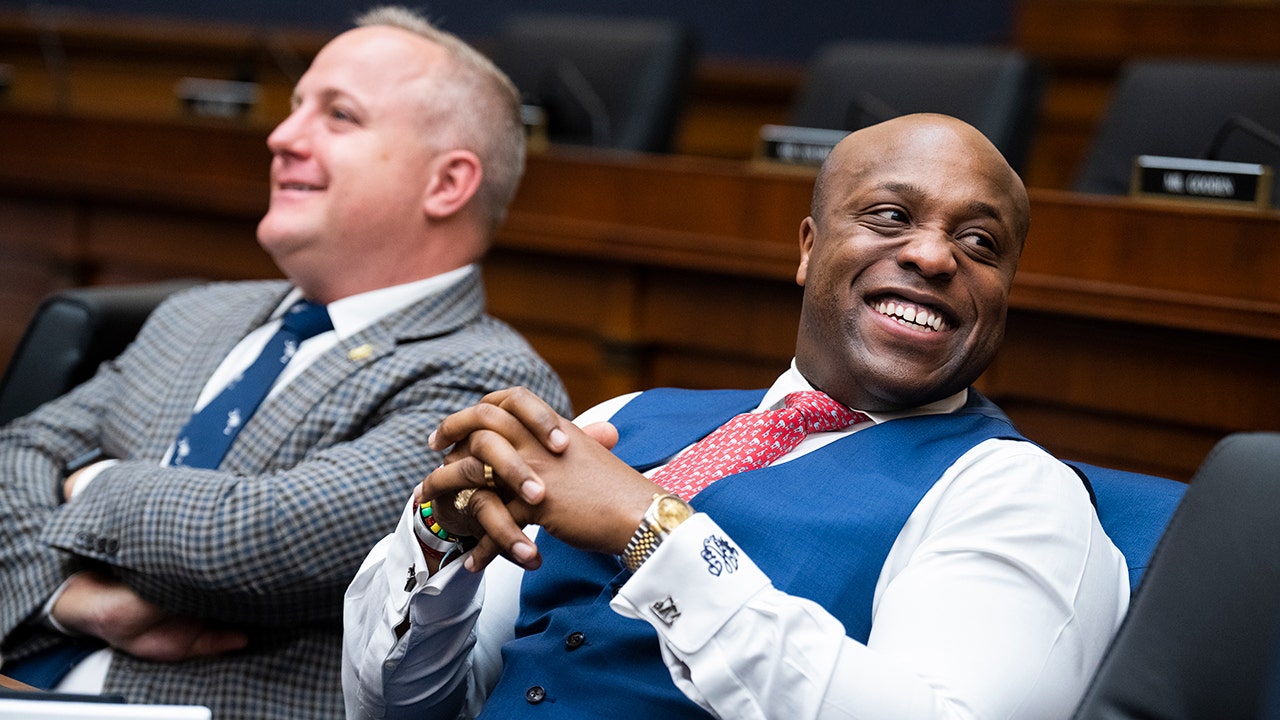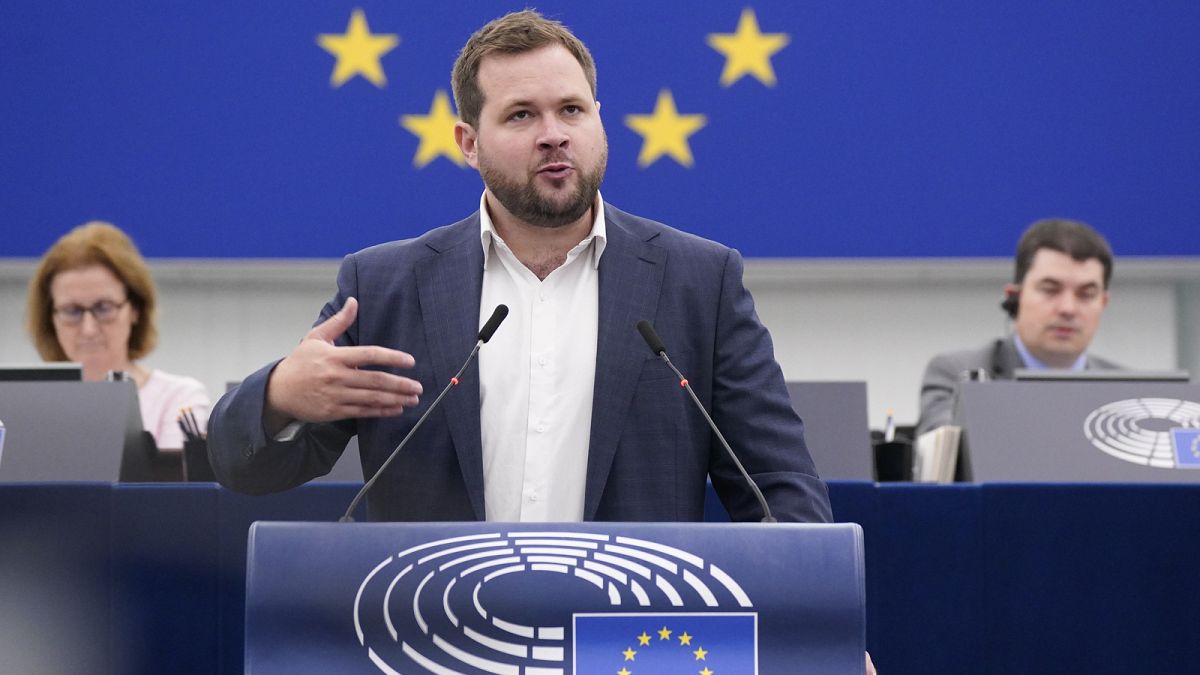Louisiana
A look back at Louisiana Democratic Gov. John Bel Edwards' eight years in office

BATON ROUGE, La. (AP) — It was 2012 and Louisiana was spiraling toward a historic budget crisis, with public colleges bracing for another round of cuts that campus leaders said were chasing away students and shuttering programs.
John Bel Edwards, then-a rural state representative, had had enough. He turned to a fellow lawmaker and said, “I’m running for governor.”
The Democrat went on to shock the country, defying near-universal predictions and winning Louisiana’s gubernatorial election in the reliably red state twice.
Advertisement
Article continues below this ad
Edwards, currently the lone Democratic governor in the Deep South, has reached his final two days in office after eight years. His tenure has been marked by successes — expanding Medicaid, joining climate change initiatives, climbing out of a budget deficit and investing in education — while navigating historical crises and facing challenges from a GOP-dominated legislature.
A decade ago, Edwards, a lawyer from a 4,000-person town in eastern Louisiana, had little name recognition as he campaigned for governor with a bare-bones team. Campaign strategists say a number of factors led to the longshot candidate’s victories: A scandal-ridden Republican opponent, Edwards’ military background and religious conservatism that attracted GOP voters, and a strong Democratic turnout from Black voters.
Edwards’ first act as governor — which he has described as the “easiest big decision” he made in office — was to expand Medicaid. More than 440,000 working poor and nonelderly adults enrolled within the first budget year, and Louisiana’s uninsured rate dropped from 22.7% to 9.4%.
Edwards entered office in crisis mode, inheriting a financial mess that included more than a $1 billion budget shortfall. The state has vastly improved financially, with an estimated $2.2 billion in extra revenue during last year’s legislative session.
Advertisement
Article continues below this ad
Financial woes weren’t the only crisis Edwards faced his first year: There were fatal floods, the shooting of Alton Sterling — a Black man killed by police — that triggered unrest and an ambush-style attack that left three officers dead.
During Edwards’ time in office there were around 50 state disaster declarations and 21 federal — from hurricanes, wildfires, threats to New Orleans’ drinking water supply to COVID-19. The West Point graduate says his Army experience influenced the way he managed crises, utilizing timely and accurate information to formulate a strategy and employ tactics.
During the start of the pandemic, Edwards and Republicans — including Gov.-elect Jeff Landry — came together in a bipartisan plea for people to do their part to avoid spreading the virus. It was a rare truce during a time of deep political divides nationwide.
Although a Democrat, Edwards’ stances on abortion and moderate pro-gun views appealed to some Republicans. Edwards said ahead of his reelection in 2019 former President Donald Trump urged the governor to switch parties.
Advertisement
Article continues below this ad
Edwards remained a Democrat, and in return Trump traveled to Louisiana to rally against him. Edwards won reelection.
Working across the aisle with a GOP supermajority also proved challenging and, at times, unsuccessful. Edwards wielded his veto powers — at one point blocking a bill prohibiting transgender athletes from competing on girls’ sports teams. In a rarity, lawmakers overrode two of the governor’s vetoes — passing into law a ban on gender-affirming care for transgender minors and overturning Edwards’ blockage of a new congressional map that lacked a second majority-Black district.
Lawmakers also halted a slew of Edwards’ goals, including increasing the minimum age and eliminating the state’s death penalty.
Perhaps one of the biggest moments of scrutiny of Edwards came following the deadly arrest of Black motorist Ronald Greene in 2019. The legislature put together a committee probing the death and to see if the governor was complicit in a cover-up of troopers. However, lawmakers abandoned their work in June without issuing any finding or hearing from the governor, despite Edwards saying he was willing to testify.
Advertisement
Article continues below this ad
Throughout his time in office, Edwards has maintained strong approval ratings among the public, continuously vowing to put people before politics.
In the Deep South state, which has had a front-row seat to the effects of climate change, Edwards put Louisiana on a path to reduce greenhouse gas emissions to net zero by 2050.
While Louisiana has tens of thousands of jobs tied to the oil and gas industry, efforts to expand Louisiana’s renewable energy industry have come to the forefront during Edwards’ administration.
Unable to run for reelection because of consecutive term limits, Edwards leaves office Monday and will join a New Orleans-based law firm where he will focus on bringing renewable energy deals to the state.
Advertisement
Article continues below this ad
Edwards says he has “no intention” to run for political office in the future, but he hasn’t outright ruled it out. For now, the governor said he is optimistic about Louisiana’s future and ready to go home.

Louisiana
Federal Court Upholds Louisiana Felony Re-Enfranchisement Policy, But Allows Lawsuit To Continue

WASHINGTON, D.C. — Louisiana voters whose registrations were suspended due to a felony conviction must continue to provide extra documentary proof of eligibility to vote while a lawsuit challenging the policy continues, a court ruled.
On Monday, a federal judge determined that civil rights groups’ challenge of Louisiana’s policy for re-enfranchising “suspended citizens” has deficiencies. In light of these technical problems with the lawsuit, the court is allowing the plaintiffs to amend their complaint, and if they fix these issues, the lawsuit will be allowed to proceed.
In Louisiana, the right to vote is restored to someone who was incarcerated for a felony conviction after they have completed their sentence or once five years have passed since their incarceration. If the voter was not previously registered, they can register to vote like any other voter. However, if the individual was registered to vote prior to their conviction, they must present documentary proof of eligibility.
Last May, several voting rights groups filed a lawsuit challenging Louisiana’s voter registration policy for those with prior felony convictions. The lawsuit specifically challenges the state’s voter registration policy regarding “suspended” voters: citizens who were previously registered to vote and whose registration was suspended due to a felony conviction. “Louisiana has attempted to create a bifurcated process for accepting voter registration forms for people with convictions,” the complaint explains.
The plaintiffs argued that the state’s policy violated the National Voter Registration Act (NVRA) because the documentary proof of eligibility requirement for previously registered voters with prior felony convictions “exceeds the information necessary for election officials to assess an applicant’s eligibility, particularly given the guaranteed statutory access election officials have to the requisite information.” The court dismissed the plaintiffs’ NVRA claims, but allowed the plaintiffs’ other claims to proceed.
The plaintiffs also argue that the re-enfranchisement policy violates the Equal Protection Clause of the 14th Amendment because “suspended” voters with prior felony convictions attempting to register to vote are treated differently than new registrants with past convictions. This claim will move forward.
The plaintiffs also point out how this requirement is rooted in racist history writing: “the paperwork requirement for suspended voters is a part of a long history of erecting additional barriers for individuals with felony convictions to gain access to the franchise in Louisiana, a practice with Jim Crow-era origins.”
The court wrote that although the scheme subjects “thousands to a cat-and-mouse document chase” and “is a severe burden on one’s right to vote,” it will not be temporarily blocked due to problems with the plaintiffs’ claims. However, the lawsuit will proceed and the case is set to go to trial in January 2025.
This is not the first lawsuit to specifically target the intricacies of a state’s voter registration process for disparately impacting individuals with prior felony convictions. The League of Women Voters of Florida and the Florida State Conference of the NAACP filed a lawsuit challenging the state’s voter registration application, but it was subsequently dismissed.
Read the opinion here.
Learn more about the case here.
Louisiana
Louisiana approves regulations on doctor ‘noncompetes,’ a win for Ochsner competitors

In a major victory for Louisiana hospitals who compete with the giant Ochsner Health System, the state Legislature on Tuesday approved a bill restricting “noncompete” agreements for physicians — a step supporters say will keep more doctors in the state and improve health care.
The legislation, Senate Bill 165, says physician contracts can only contain the so-called noncompete clauses for up to five years depending on doctors’ specialties. If they leave a job while their contracts contain such a clause, doctors would be subject to those agreements for up to two extra years and would be barred from practicing medicine in as many as three parishes that surround their employer.
Under current law, hospitals can put noncompete clauses into contracts for as long as they wish. And there’s no restriction on the number of parishes the deals can cover, which can bar doctors from moving freely between jobs in Louisiana, supporters of regulation say.
The bill, carried by Sen. Patrick McMath, R-Covington, passed the state House 100-0 Tuesday after initially passing the Senate unanimously, too. It’s the culmination of a years-long battle between Ochsner and its competitors.
“This has been a long time coming,” said Rep. Stephanie Berault, R-Slidell, who presented the bill for McMath in the House. “It’s an important piece of legislation (not just) for our physicians, but for patients and the people of Louisiana.”
In a statement on the vote provided by a spokesperson, Ochsner Chief Physician Executive Dr. Robert Hart said the health system makes “significant investments in our care teams and specialty programs so we can continue to attract and retain top talent.”
“We will continue to work with our physicians, the Louisiana Department of Health and the state legislature to ensure access to high-quality care in our communities,” Hart said.
The hospital system is a staunch believer in noncompete agreements, deploying them regularly with physicians they employ. Ochsner and other defenders of the practice say it lets hospitals limit risk, ensuring they aren’t investing big money into training and supporting doctors only to see them leave and take their patients to another nearby clinic.
Supporters of rolling back noncompete agreements counter that they force doctors out of the state, especially as Ochsner has grown its footprint to include a wide swath of Louisiana. Many agreement provisions say that once an Ochsner doctor leaves, they can’t work for two years in any parish where Ochsner has a presence.
The outcome of McMath’s legislation, which heads now to the desk of Gov. Jeff Landry, was cheered by some of Ochsner’s main competitors. Ryan Cross, a lobbyist with Franciscan Missionaries of Our Lady Health System, which runs Our Lady of the Lake Health, called the vote “a big win for patients and physicians across Louisiana,” and said the legislation will keep strong physicians in the state.
The bill now heads to the governor for his signature or veto. A Landry spokesperson did not immediately respond to a question about the governor’s position on the bill. But McMath, the bill’s sponsor, said that Landry’s appointed health secretary, Dr. Ralph Abraham, was pivotal in marshaling support for the bill.
The debate over hospital noncompete clauses last surfaced in 2021 when a bill by Rep. Mark Wright, R-Covington, proposed similar restrictions on the practice. Wright’s House Bill 483 laid out a time limit and a buyout provision for certain doctors and sought to exempt rural hospitals that use noncompete clauses from the limits.
After passing the House, that bill died in a Senate committee.
McMath cast it as a means to bolster care in rural and underserved parts of Louisiana where hospitals already struggle to hire and retain physicians. He said he personally knew of three physicians who’ve left Louisiana rather than violate the terms of noncompetes.
Separately from the legislation approved in Louisiana, the Federal Trade Commission voted several weeks ago to enact a total ban on noncompete agreements. According to the FTC, 30 million people — roughly one in five workers — are now subject to such restrictions.
The rule, which doesn’t apply to workers at non-profits, is to take effect in three months but is expected to face in legal challenges. The FTC rule also doesn’t apply to not-for-profit employers. Ochsner is a not-for-profit health system.
Louisiana
Louisiana VooDoo is no longer an Arena Football League Team

LAKE CHARLES, La. (KPLC) – Per a press release from the Arena Football League on Tuesday evening, the Louisiana VooDoo will not be retained as one of the 10 teams the league will move forward with.
The VooDoo were introduced in November and were supposed to play their home games at the Lake Charles Event Center, but on April 19, just eight days before their first game was set to be played, it was announced that they would be moving to Blackham Coliseum in Lafayette.
The team alleged that the move was due to problems with the company that manages the Lake Charles Event Center, ASM, which ASM rebutted, saying the team never provided the necessary insurance documents, nor had payment been received for the lease.
Following the Voodoo’s first game on April 27, in which they beat the Philadelphia Soul 53-18, their next two games were postponed, and canceled due to problems with the netting at Blackham Coliseum.
Included in the press release was the announcement that former NFL head coach Jeff Fisher will serve as the league’s new interim commissioner. Fisher is the current President of Football Operations for the Nashville Kats, one of the 10 teams retained by the league per the press release.
The press release did state that they will “be speaking to the other teams not mentioned, to discuss, and perhaps include them in current games in current games/seasons.”
Officials with the VooDoo said the team is still trying to work something out with the Arena Football League to be included in plans for the future of the league.
Copyright 2024 KPLC. All rights reserved.
-

 Politics1 week ago
Politics1 week agoHouse Dems seeking re-election seemingly reverse course, call on Biden to 'bring order to the southern border'
-

 Politics1 week ago
Politics1 week agoFetterman says anti-Israel campus protests ‘working against peace' in Middle East, not putting hostages first
-

 News1 week ago
News1 week agoUS man diagnosed with brain damage after allegedly being pushed into lake
-

 World1 week ago
World1 week agoGaza ceasefire talks at crucial stage as Hamas delegation leaves Cairo
-

 World1 week ago
World1 week agoStand-in Jose Raul Mulino wins Panama presidential race
-

 World1 week ago
World1 week agoTech compliance reports, Newsletter
-

 News1 week ago
News1 week agoCompass Direct LLC’s 2024 Registration in North Carolina
-

 News1 week ago
News1 week agoColumbia University cancels its main commencement ceremony after weeks of turmoil


















